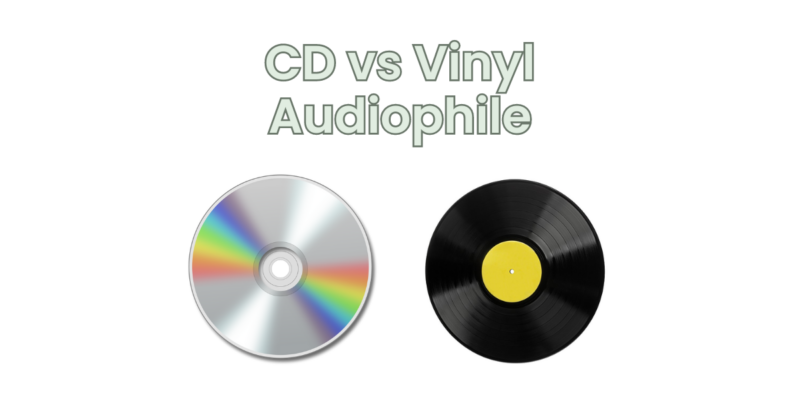The world of audiophiles is a passionate and diverse community, filled with individuals who appreciate high-quality sound reproduction. Within this community, one debate has raged on for decades: CD versus vinyl. Both formats have their dedicated fan base, each championing the superiority of their chosen medium. In this article, we will delve into the arguments made by both sides, exploring the unique characteristics and merits of each format.
The Resurgence of Vinyl:
Vinyl records have experienced a remarkable resurgence in recent years. Audiophiles argue that vinyl offers a warmer, more authentic sound compared to digital formats like CDs. Vinyl records are analog by nature, capturing sound waves directly onto grooves on the record’s surface. This analog process is often described as being more faithful to the original recording, creating a unique sonic experience.
Vinyl enthusiasts also appreciate the tactile and immersive nature of the format. The large album covers, the physical act of flipping through records, and the satisfaction of placing the needle on the record create a ritualistic experience that many find deeply satisfying. Vinyl records also tend to have a larger dynamic range, allowing for more nuanced and detailed sound reproduction.
The Case for Compact Discs:
While vinyl has enjoyed a resurgence, compact discs remain a staple in the audio industry. CD advocates argue that digital formats offer superior fidelity and convenience. CDs have a higher signal-to-noise ratio, meaning they produce less background noise and offer a cleaner listening experience. This is particularly advantageous for classical music and genres that rely on intricate musical details.
CDs also offer unparalleled durability and longevity. Vinyl records are susceptible to wear and tear over time, and even small scratches can affect sound quality. CDs, on the other hand, are less prone to damage, and with proper care, they can provide excellent sound reproduction for decades. Additionally, CDs are easily portable and can be ripped into lossless digital formats, allowing for convenient playback on various devices.
The Subjectivity of Sound Quality:
It is important to note that sound quality is a subjective experience. Different individuals have different preferences and sensitivities when it comes to audio reproduction. While vinyl records may offer a warmer and more authentic sound to some, others may prefer the pristine clarity and convenience of digital formats like CDs.
Furthermore, the quality of the audio system and the mastering of the recording can significantly impact the listening experience. A poorly mastered vinyl record may sound worse than a well-mastered CD, and vice versa. It is crucial to consider the entire audio chain, including the turntable or CD player, amplifier, speakers, and the listening environment, to fully appreciate the potential of either format.
In the end, the CD vs. vinyl debate boils down to personal preference. Some listeners value the tactile experience and nostalgic appeal of vinyl, while others prioritize the convenience and fidelity of digital formats. Ultimately, what matters most is the enjoyment of music and the emotional connection it evokes.
Embracing Both Worlds:
Fortunately, one doesn’t have to choose sides in this ongoing debate. Many audiophiles enjoy the best of both worlds, embracing vinyl for its unique charm and digital formats for their convenience and versatility. With the rise of hybrid turntables that include digital outputs, listeners can have the warm sound of vinyl while simultaneously creating high-quality digital copies for portable listening.
In conclusion, the CD versus vinyl audiophile debate is unlikely to be settled anytime soon. Both formats have their distinct qualities, and the choice ultimately comes down to personal preference. Whether you find solace in the nostalgic crackles of vinyl or appreciate the pristine clarity of CDs, what truly matters is the joy of immersing oneself in the world of music and finding one’s own audio nirvana.


